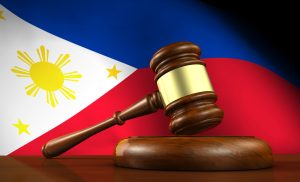The plan to amend certain economic provisions of the 1987 Philippine Constitution is proceeding, with President Ferdinand “Bongbong” Marcos Jr. announcing his preference to hold a plebiscite during the 2025 midterm local election. Both Houses of Congress, the Senate and the House of Representatives, are already conducting public hearings about the proposal, despite the concerns raised by various stakeholders that the planned Charter Change, or ChaCha, could lead to the removal of term limits and the self-serving extension of terms of incumbent officials.
The 1987 Constitution was drafted a year after the People Power uprising which deposed the government of the late dictator Ferdinand Marcos, the father of the current president. The new Constitution has provisions that imposed term limits, banned foreign military bases, strengthened the Bill of Rights, and restricted foreign ownership of land and domestic industries.
Since 1997, ChaCha proposals have failed to move forward because of widespread public opposition to the intent of politicians to remove the constitutional term limits. The president is restricted to just one term in office, Senators to two terms, and members of Congress and local officials to three terms.
In recent years, ChaCha proponents have modified their narrative by claiming that their only agenda is to liberalize the economy by removing the constitutional restrictions on foreign ownership and control of local industries.
Last year, Marcos allies in Congress passed a resolution in favor of a so-called “economic ChaCha.” In January of this year, ChaCha proponents said they already had enough signatures from voters in support of a People’s Initiative for constitutional reform. This elicited strong objections from Senators and the family of former President Rodrigo Duterte, who accused some legislators of maliciously using public funds to gather signatures for ChaCha.
Despite the protests, the Senate passed a resolution for economic ChaCha which was copied by the House of Representatives
Marcos broke his silence in late January, stating in a media interview that he favors amending the restrictive provisions of the 1987 Constitution. This “was not written for a globalized world. That is where we are now… so we have to adjust so that we can increase the economic activity in the Philippines so we can attract more foreign investors,” Marcos said.
The Senate has been traditionally critical of ChaCha because of the fear that it can be abolished if the amendment involves the adoption of federalism or a unicameral parliamentary form of government.
The reluctance of the Senate to rush the ChaCha proceedings is reflected in the opening statement of Senate President Juan Miguel Zubiri during the public hearing. “We will not be falling into a trap on any deadline because to discuss such an important matter needs time, it needs study,” he said. “It cannot be rushed like any regular bill that is just approved without thinking.”
The distrust between the two chambers of Congress is evident in the manifestation of Senate Majority Leader Joel Villanueva. “We will continue to be vigilant,” he said. “Experience has taught us that what they say in the House and what they do can be two different things. We will make sure their words and actions are consistent.”
House Speaker Ferdinand Martin Romualdez, who is a first cousin of Marcos, has dismissed allegations that the real motive in the aggressive push for ChaCha is to remove term limits. “Categorically, we are denying this unfounded and baseless accusation. There is absolutely nothing in [the resolution] that hovers on any political provision of the Constitution,” he said in a statement.
Indeed, Romualdez is correct to point out that the ChaCha resolution is only about allowing foreigners to own companies involving public utilities, education, mass media, and advertising. He and his subordinates have failed to mention that once Congress passes the resolution, the issue of whether the two Houses of Congress should vote together or separately can be finally questioned in the Supreme Court. Then, there will be a precedent on how Congress can amend the Constitution through a Constituent Assembly. This will give enough time to overhaul the Constitution before the end of Marcos’ term in 2028. This could be the “trap” referred to by Zubiri in his statement.
What the Senators and other anti-ChaCha advocates should underscore in their arguments is that the government has already approved laws and rules allowing foreigners a bigger role in the economy. In other words, ChaCha is unnecessary to attract more foreign investments. Instead of ChaCha, legislators and the Marcos government should reconsider the overreliance on foreign investors to steer the country’s economic path.
Congress will adjourn sessions before the Holy Week. The next two weeks are therefore crucial if pro-ChaCha legislators will be able to persuade the Congress leadership to vote on the measure. Furthermore, their biggest challenge is how to get the support of the public who are increasingly being made aware that Marcos and his allies are prioritizing ChaCha instead of other urgent people’s concerns.

































